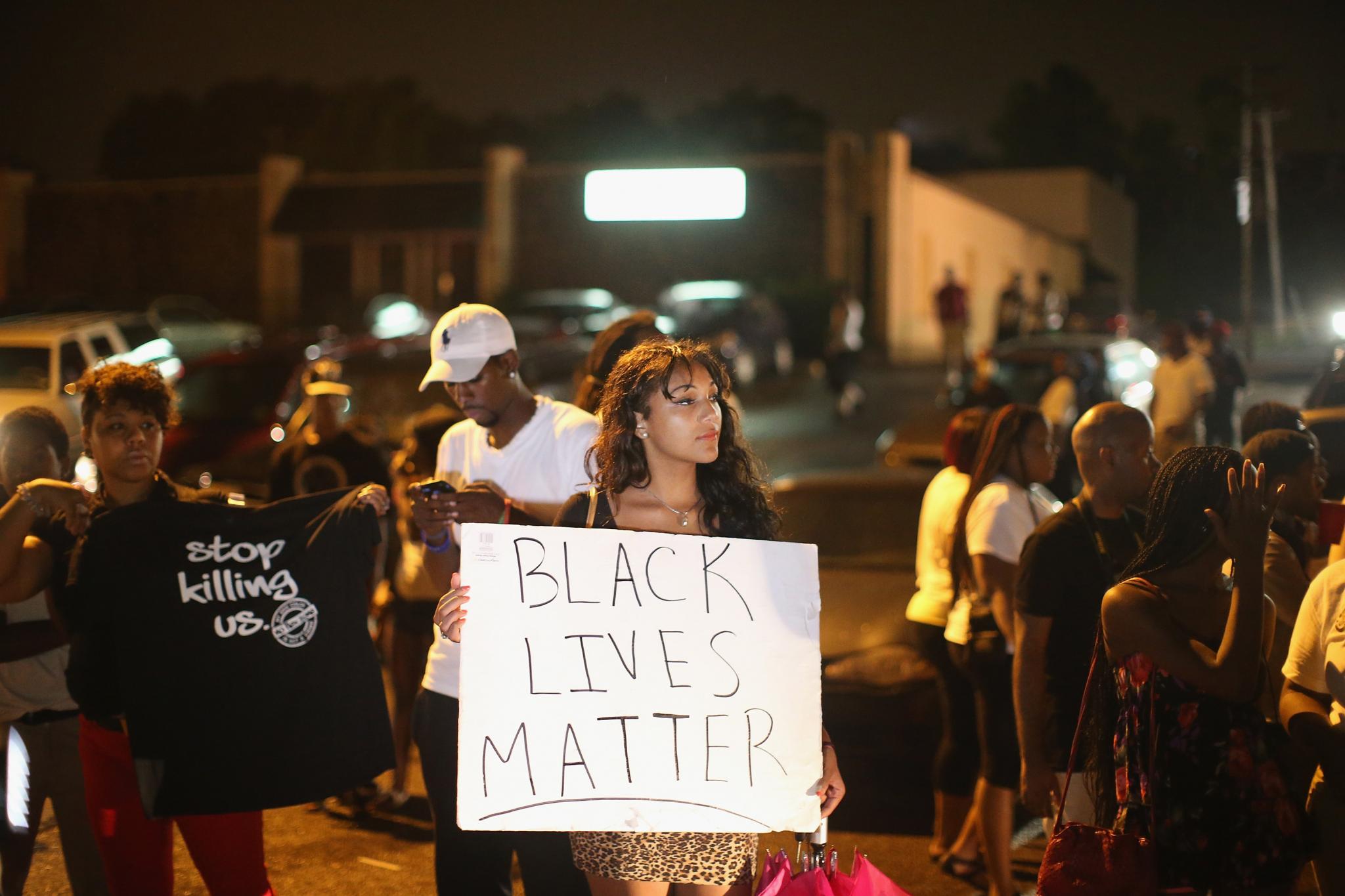
On the evening of June 17th, a 21-year-old Dylan Roof arrived at Emanuel AME church in Charleston, South Carolina with murder on his mind. Roof sat at Mother Emanuel’s weekly Bible study for more than an hour, prayed with 10 Black churchgoers in their sanctuary and then slaughtered them all in cold blood. Roof has since admitted to the police that he went into the church specifically because it was symbol of Black resistance and freedom. Roof also admitted that he had hopes his actions would start a race war.
We spoke with the three creators of the #BlackLivesMatter hashtag, Opal Tometi, Alicia Garza, and Patrisse Cullors, for reflections in the aftermath of the tragedy in Charleston with a look towards the near future. What does the Mother Emanuel massacre means in the larger context of America’s history of white supremacy and racialized terrorism, how is this tragedy related to the larger movement to validate the sanctity of Black life, and what can lawmakers and presidential hopefuls say or do to speak to the concerns specifically raised by the movement over the past year since an unarmed Michael Brown was killed last August?
ESSENCE: This has been a really emotional and tragic few months in the wake of the Charleston massacre. What was your reaction when you first heard the news?
Opal Tometi: I feel sick. I find myself almost at a loss for words because this killing of nine innocent people in their own sacred sanctuary is the most grotesque act of terrorism I could ever imagine. I’m a Black Christian woman, a person who has family members who pastor Black churches across the country, and the director of Black Alliance for Just Immigration (BAJI), which was founded by two Methodist pastors. This national tragedy has weighed on me heavily. I long for our people to be truly safe. All that said, I also have never been more resolute as a person of faith in her righteous pursuit of justice — and that means ensuring that all Black lives matter. And making sure that racist White domestic terrorists like Dylann Roof never murder our people again.
Alicia Garza: I was in Detroit and I had just arrived for our Black Lives Matter chapter retreat. I was literally just arriving at a restaurant where people had met up and we were doing trouble shooting about the retreat and just as I was getting ready to head to the hotel, a friend said, a bunch of people were just slaughtered in South Carolina. And I remember sitting in the restaurant and looking up at the television and seeing it flash across the screen. Honestly, my first thought was, It’s happening again.
Patrisse Cullors: I was in shock when I heard the news, but also was not surprised. I think that we’ve seen throughout our history Black folks have been terrorized, and I think that when we make certain choices to say “our lives matter,” there is sometimes an even more intense response. So I think that’s what we are seeing and it scares me and it makes me scared for our people who are out on the front lines. I’m worried about our team and what this means for us as well as the larger community.
ESSENCE: What do you want to hear from presidential candidates on these issues of social and racial injustice?
Opal Tometi: I want to see all candidates have a substantive racial justice agenda. This would be a robust agenda that addresses race at every major issue area: jobs, economy, immigrant rights, health care, housing, LGBT rights and so on. Any politician that doesn’t work to ensure that Black lives matter should not hold office. And our communities shouldn’t settle for anything short of an explicit racial justice platform from all candidates regardless of party affiliation. It’s high time that electoral politics address the issues of our day.
Alicia Garza: The first thing I would love to hear from all of these candidates is what are their thoughts on how we can address structural racism in our society. Voters don’t just want to just hear fancy speeches that give limited homage to this movement. What people want to hear is what are you doing to make sure that our quality of life is protected and that our lifestyles are sanctified.
ESSENCE: What does #BlackLivesMatter have planned in the coming months?
Opal Tometi: Well, it’s safe to say that this is Black Spring! We are seeing a vibrant Black human rights movement sweep the nation and the globe. This is the revival of a movement that we’ve needed for decades now. #BlackLivesMatter and BAJI plan to continue to work with communities across the nation to support transformative justice. We will work to address the root causes of social inequities. The reality is that governments over the years have divested in the public safety net, and invested in criminalization. We want to redefine safety on the community’s terms, and for them safety looks like jobs for youth, mental health support, quality housing and transportation.
Zerlina Maxwell, J.D., is a political analyst and ESSENCE contributor. She writes about national politics, candidates, and specific policy and culture issues including domestic violence, sexual assault, victim blaming and gender inequality.
